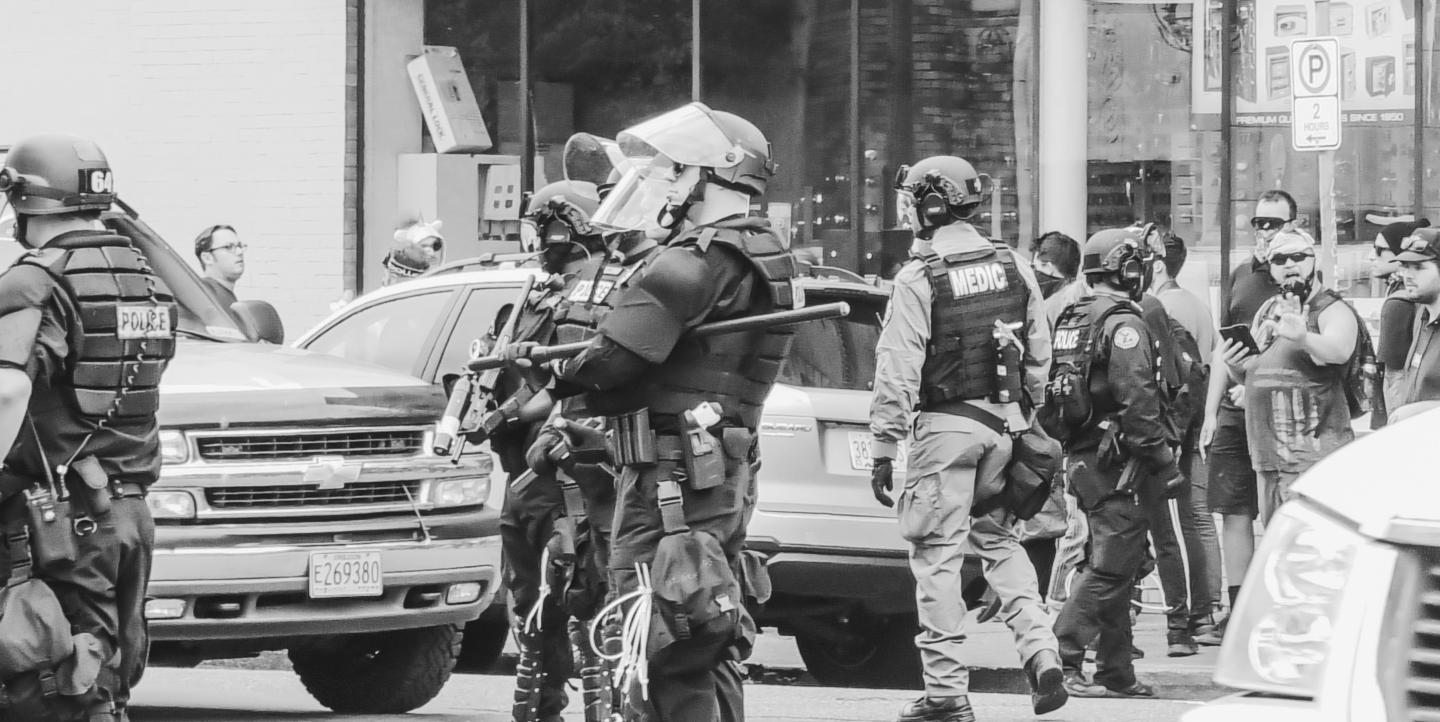Far-right extremism is on the rise globally. Knowing how to investigate and report on the movement and its actors is paramount for journalists today.
The January 6 attack on the U.S. Capitol in 2021, for instance, was heavily influenced by two of America's most well-known far-right extremist groups, the Proud Boys and Oath Keepers. Prior to the storming of the Capitol, members of these organizations played a "central organizing role" in the attempted insurrection, according to media reports, and warned of a “bloody” civil war if Trump did not win re-election.
During a recent ICFJ Pamela Howard Forum on Global Crisis Reporting webinar entitled "Investigating and Reporting Far-Right Extremism," Arabist investigative journalist Yassin Musharbash, author of The Globalization of Far-Right Extremism: An Investigative Report, advised journalists to, first and foremost, be inquisitive about the subject.
A New York Times opinion piece on far-right extremism was the inspiration for the report. Published prior to Russia’s full-scale invasion of Ukraine in 2022, the op-ed described how American far-right extremists were traveling to the conflict in eastern Ukraine for paramilitary training.
“After I read this article, I thought, is this [the conflict being a magnet for far-right extremist foreign fighters] true? Are there so many foreign fighters of the far-right that went to Ukraine to network there? This was alarming,” he said.
Musharbash's report showed how right-wing extremists today increasingly view themselves as participants in a worldwide struggle against a global enemy rather than as individual nationalist movements. Networking and cooperating across borders is increasingly common among these groups.
Here are some suggestions Musharbash offered for journalists reporting on far-right extremism:
Tools and techniques
There are a host of tools and techniques at journalists' disposal when reporting on global far-right militancy, Musharbarsh said. He highlighted a few that he and his team have used in their own investigations.
For one, attending court proceedings is crucial — they enabled Musharbash to establish foreign connections held by the far-right extremists. “For instance, two neo-Nazis were prosecuted in a court case in the Netherlands because they had ties to the American network, The Base,” he said. In a separate German court case, court proceedings laid out how one young German neo-Nazi became radicalized and recruited online.
Musharbash's team used data mining and social media investigations to establish these global links, too. “We managed to get leaks from internal chats in the U.S [and] digitized all of that and made it searchable. We also did social media investigations on one German who worked [with] Ukrainian neo-Nazis and helped them recruit,” he said.
Working with colleagues and teams across languages and regions is essential. This was clear when his team approached the Russian Imperial Movement, a far-right white supremacy group based in St. Petersburg involved in fighting in Ukraine in the years before the full-scale invasion in February, Musharbash explained.
Musharbash's investigative team used Telegram chats and other social media platforms to gather information for their story, he explained: "There are certain places where [far-right extremists] hang out, and these places change all the time, making it difficult to keep track of where they are. Journalists should keep an eye out for these chat rooms, forums and billboards."
Managing risk
Reporters should be cautious and make sure to have a support team of other journalists during their investigations, advised Musharbash.
"You never know what kind of threats you might experience when you meet with these folks,” he said. “[In one] instance, one of my colleagues who was looking into neo-Nazis insisted on going for a solo walk in the mountains [with the neo-Nazis for an interview]. This presented a bit of a security challenge because we wanted to make sure our reporter was safe. We had a security protocol in place who checked in every 30 minutes to send us a signal that he was okay."
Musharbash’s team also made sure to identify where the nearest police station was to their journalist. “Our first rule is, don't take unnecessary risks. If you feel that this could escalate, there is danger, don't force your way in,” he said. Managing risk is the case-by-case call of the journalist and their editors: “Real journalism would never be 100% risk-free."
It is vital to inform the public about far-right extremism — but don't give these groups an additional platform, Musharbash cautioned. He urged journalists to check their facts, balance their stories, and present reporting on the far-right in a professional manner.
“It is possible to write about what these people believe without helping them get recruits. Quite the opposite, it helps to raise the awareness of how big the problem is,” Musharbash said.
Photo by Skylor Powell on Unsplash.


